Research cluster 3: Sustainable Urban Storm Water Management (Head: Brigitte Helmreich)
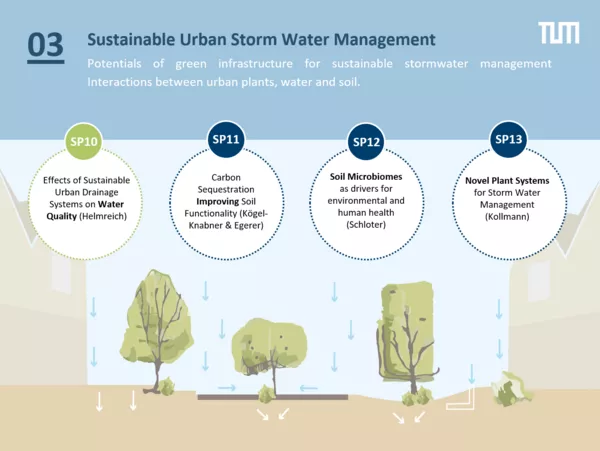
Urbanization has disrupted or replaced natural hydrological processes due to the regulation of urban watercourses, sealing, and degrading of natural soils. This results in reduced evapotranspiration, less cooling, blocked infiltration, and frequent flooding. Moreover, sealed surfaces in rapidly expanding cities cause biodiversity losses and reduced ESS. They also cause transport and accumulation of pollutants originating from traffic areas, building materials, and industrial processes. Current technical solutions lead the stormwater runoff via the sewer system out of the cities and discharge it into sewage treatment plants or surface waters. However, under climate change, these systems need to be monitored and improved. In addition, these systems are challenged by more frequent and heavier rainstorms as well as extensive droughts.
Sustainable Drainage Systems (SUDS), which manage stormwater on-site, have been suggested as a measure to deal with these issues, and it is known that SUDS can retain, for example, heavy metals. So far, SUDS are designed from a technical and engineering perspective as infiltration systems without fully considering the potential of such systems to become hotspots of biodiversity, thus, generating positive feedback loops for the urban environment including for the mitigation of climate-related issues. Improved systems should take up large amounts of stormwater, deal with pollutants, prevent erosion, be drought-tolerant, and be covered by attractive vegetation with low maintenance costs. However, there is a lack of understanding of the techno-ecological characteristics of SUDS as elements of the UGI that provides multiple functions and ecosystem services. The challenge is to combine expertise in wastewater treatment and urban drainage with microbial ecology, soil science, restoration ecology and vegetation management.
We plan to generate biodiversity hotspots using SUDS in urban environments resulting in multiple ecosystem services provided by these structures. This includes reducing negative health impacts for humans living in urban environments, and in the long-run promoting urban horticulture. These aims require an in-depth understanding, which plants tolerate the specific site conditions at SUDS, including stress caused by extreme redox conditions, biocides, and heavy metals, and how the soil microbiome can support the growth of the target plants.
RC3 will investigate the uptake of urban stormwater run-off and the decontamination of pollutants by enriched sorption materials, the soil microbiome and plants in a three-staged approach. This should result in improved water purification, carbon sequestration, biodiversity, and food and flower production, as well as a more buffered urban climate by increasing evapotranspiration through specifically designed plant mixtures. The cluster will collaborate with Cluster 1 on opportunities of SUDS as multifunctional areas, e.g., for mobility systems.
These objectives are addressed by close interaction of four doctoral projects, which approach the topic from different perspectives. In addition to lab-scale experiments (stage 1 of every subproject), an experimental SUDS at semi-technical scale (stage 2) will be established where all doctoral candidates of RC3 will conduct their experiments in close collaboration, and then jointly review key aspects (water, soil, plants, microbes, micro-climate, pollutants) of the developed systems. For stage 2, we will utilize concrete rings (>20) with 1-m diameter and 1- m height at the TUM Campus Garching. Stage 3 will complete the program through investigations at the technical scale at already existing SUDS in various sites in Munich. Here, a Mercator Fellow (Dr. Deeb) with expertise in urban technosols and SUDS will be brought in to advise SUDS implementation especially in stage 3. Stages 1 and 2 will be established in the first year and monitored in the following years, while in the second year (stage 3) the baseline conditions of existing SUDS will be assessed in terms of biodiversity and ecosystem functioning. Also, new soil treatments and experimental communities will be established and analyzed in the third year, these treatments will also serve as the basis for new studies in the second cohort of doctoral projects the RTG.
The subprojects of research cluster 3 are

SP10: Effects of Sustainable Urban Drainage Systems on Water Quality
PI: Prof. Dr.-Ing. Brigitte Helmreich
Doctoral Candidate: Natalie Páez-Curtidor
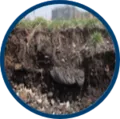
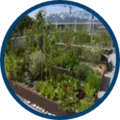
SP11: Carbon Sequestration Improving Soil Functionality
PI: Prof. Dr. Monika Egerer & Prof. Dr. Dr. Ingrid Kögel-Knabner
Doctoral Candidate: Lauren Porter
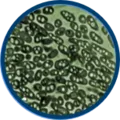
SP12: Soil Microbiomes as drivers for environmental and human health
PI: Prof. Dr. Michael Schloter
Doctoral Candidate: Swanandee Nulkar
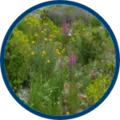
SP13: Novel Plant Systems for Storm Water Management
PI: Prof. Dr. Johannes Kollmann
Doctoral Candidate: Nadja Berger